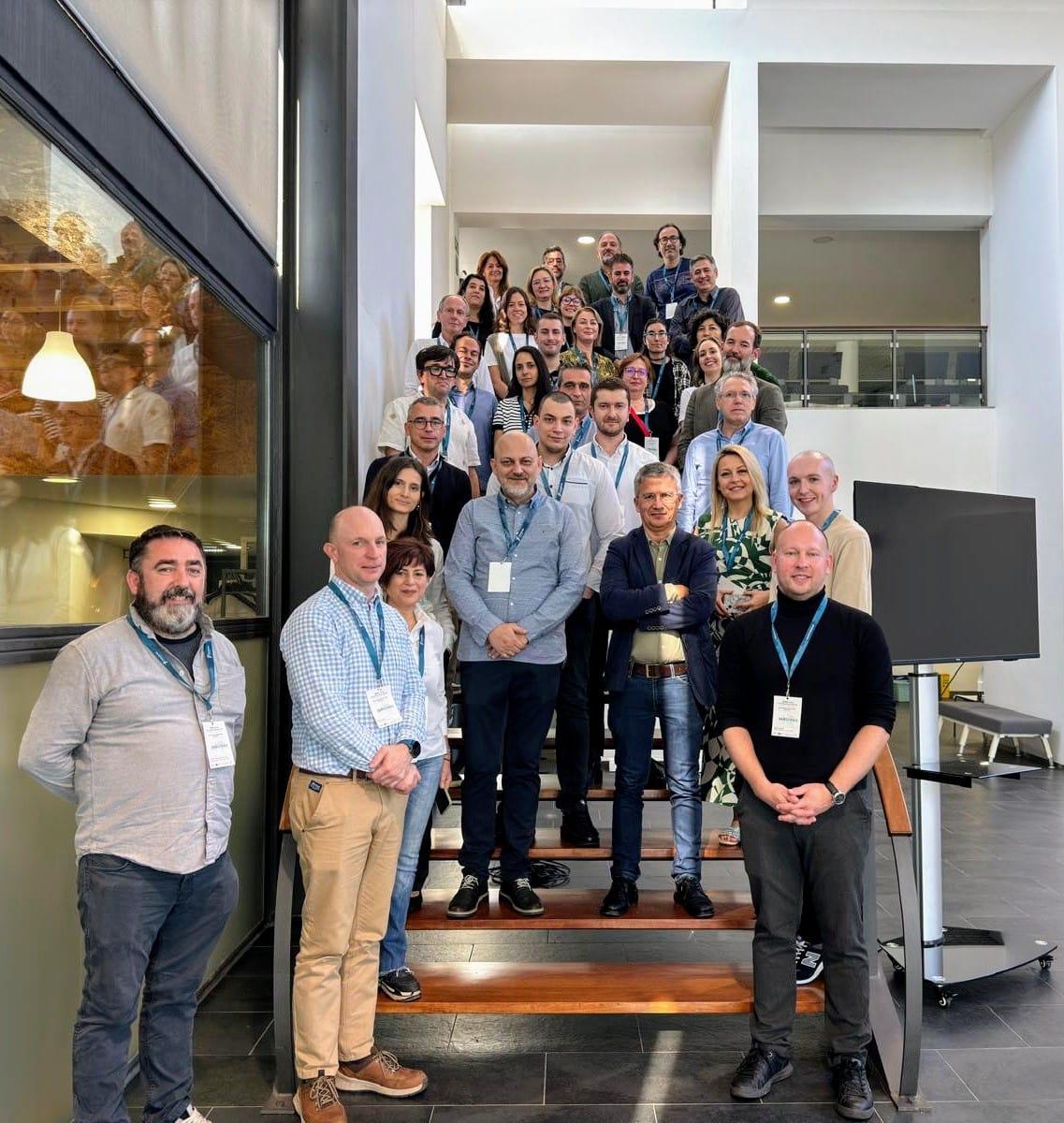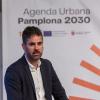What Could Bring Together a Handful of Stakeholders from Across Europe in Vila Nova de Famalicão, Portugal?
What could possibly prompt this diverse group to leave behind their daily tasks and responsibilities to travel from as far away as Greece or Poland? What shared interest could unite the mayor of a small Czech town and an astrophysicist leading R&D at a Spanish startup?
It’s 11:30 a.m. on Wednesday, October 23rd, 2024. The setting is the ground floor of a sleek, modern building housing CITEVE, a textile industry technology centre located in Famalicão. Warm autumn sunlight streams through the expansive south-facing windows, illuminating the space.

In the lobby, about 40 people gather in small groups, chatting over coffee or juice. The mix of languages in the air reflects the international nature of the attendees, hailing from Portugal, Greece, Montenegro, Poland, the Czech Republic, Ireland, Italy, and Spain. Outside, a few individuals savour a cigarette, exchanging remarks about the pleasant Portuguese weather, until the coffee break comes to an end.
It’s time for the stakeholders to take the stage.
Stakeholders Unite: Conversations Around the Round Tables.
Gradually, attendees filter into a spacious meeting room adjacent to the lobby, taking their seats at small, randomly arranged round tables. For most, this is the first time they are meeting their European counterparts face to face. Among them is Emma Gill, Boyne Valley Food Business Development Officer from Ireland, and Marcel-lí Pérez, a Textile Engineer and professor at the Higher School of Design in Sabadell, Catalonia. Others, like Martin Mrkos, the mayor of the Czech city of Žďár nad Sázavou, and Miguel Ángel Peña, Innovation and Research Manager at the Spanish company SATEC, are familiar faces in these types of gatherings.
URBACT Lead Expert Jose Costero opens the session with a concise explanation of the vital role stakeholders play in designing action plans for the green transition. “The active participation of your stakeholders in the co-design and implementation of the integrated action plans you are developing is crucial for the success of your green transition processes,” Jose asserts. Urban managers in the room nod in agreement, acutely aware of the challenge and importance of achieving this.
“But what motivates stakeholders to dedicate their time voluntarily?” Jose asks the audience, continuing: “Have you considered what they gain from participating? What drives them—whether it’s influence, inspiration, knowledge, professional development, or something else?” He then sets the stage for the stakeholders to share their perspectives, inviting each to introduce themselves and explain their collaboration with their municipality, as well as their personal motivations.
Emma Gill takes the floor, speaking about her work in Navan, Ireland. “Our food strategy is based on a collective approach to sustainability. Our vision is for the Boyne Valley to be recognised as a leading region for food sustainability and the role of food in contributing to our societal, environmental, and economic objectives.”
Next, Laura García, an astrophysicist and innovation lead at the Spanish startup Room2030, shares her vision. “Our goal is to create the room of the future, which, manufactured industrially, will be intelligent, sustainable, flexible, and healthy,” says Laura, emphasizing that her company’s involvement stems from a strong commitment to sustainability.
With each stakeholder’s introduction, the room becomes a vibrant space of shared goals and diverse motivations, setting the tone for a collaborative and inspiring day ahead.
Voices of Change: Diverse Stakeholders, United Goals
The testimonies at the event are as diverse as the people behind them: university researchers, CEOs, NGO workers, political representatives, municipal employees, and members of industrial associations. Each brings a unique story, yet all share a common purpose: contributing to the ecological transition of their cities, especially in the context of their economies and industries.
This shared mission is why they collaborate with local governments through URBACT Local Groups (ULGs) and why they travelled to Vila Nova de Famalicão, Portugal. Here, they came to learn firsthand about the efforts of other European cities and to exchange ideas with peers from different countries, even when language barriers made communication a challenge.

A Mosaic of Interests and Discussions
Their areas of interest were as varied as their backgrounds, though all were tied to the green transition: circular economy and recycling, energy transition and climate change, sustainable water management, sustainable food production, and the application of new technologies, among others.
During the III Transnational Meeting of the URBACT In4Green network, more than 20 stakeholders participated in sessions designed to foster collaboration and exchange. Highlights included presentations on testing activities, a workshop on the experiences of Sustainable Energy Communities in Larissa (Greece) and Navan (Ireland), and thematic workshops on Climate Neutrality and Decarbonization, as well as Digitalization and Industrial Innovation.
Inspired to Act
By the end of the second day, stakeholders and local teams from In4Green returned to their cities tired but inspired. They carried with them fresh ideas and insights from local initiatives like CITEVE, a technology centre for the textile industry, and Famalicão IN Hub, a hub for innovation and entrepreneurship.
Above all, the opportunity to engage in discussions and share experiences with their European colleagues reinforced their commitment to the green transition and sparked renewed energy for the challenges ahead.

About the III Transnational Meeting of the URBACT In4Green Network in Famalicão, Portugal
On October 23rd and 24th of 2024, Vila Nova de Famalicão (Portugal) hosted the third transnational meeting of the URBACT In4Green network. During this event, partners advanced their collaborative learning and peer-to-peer exchange processes to co-produce local green transition strategies in partnership with their stakeholders.
The meeting brought together approximately 40 participants from nine European cities, along with representatives from the URBACT Secretariat, the URBACT Spain National Contact Point, and experts including Lead URBACT Expert Jose Costero and Ad Hoc Expert Mar Santamaria.

The URBACT In4Green network is a project co-funded by the European Commission through the European Regional Development Fund (ERDF), furthering efforts to support sustainable urban development across Europe.

